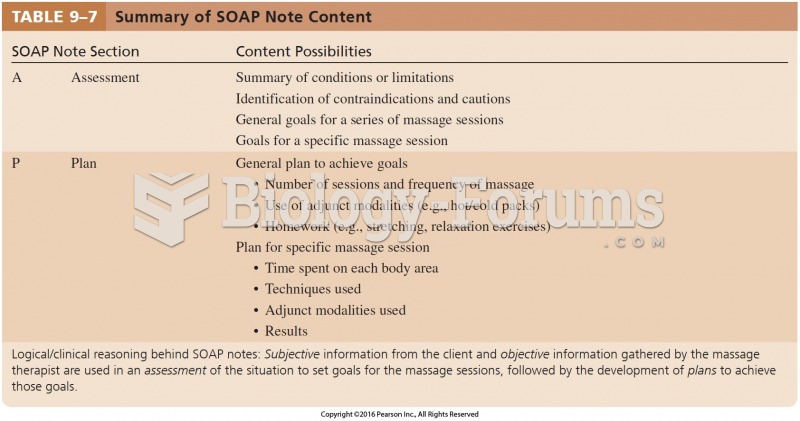|
|
|
Medications that are definitely not safe to take when breastfeeding include radioactive drugs, antimetabolites, some cancer (chemotherapy) agents, bromocriptine, ergotamine, methotrexate, and cyclosporine.
After a vasectomy, it takes about 12 ejaculations to clear out sperm that were already beyond the blocked area.
HIV testing reach is still limited. An estimated 40% of people with HIV (more than 14 million) remain undiagnosed and do not know their infection status.
Normal urine is sterile. It contains fluids, salts, and waste products. It is free of bacteria, viruses, and fungi.
Elderly adults are at greatest risk of stroke and myocardial infarction and have the most to gain from prophylaxis. Patients ages 60 to 80 years with blood pressures above 160/90 mm Hg should benefit from antihypertensive treatment.
 (a) Homologous traits are similar due to shared ancestry. (b) Analogous traits (bats’, birds’, and f
(a) Homologous traits are similar due to shared ancestry. (b) Analogous traits (bats’, birds’, and f
 The crania, and especially the faces of KNM-ER 1813 and 1470, differ enough that some scientists inc
The crania, and especially the faces of KNM-ER 1813 and 1470, differ enough that some scientists inc





